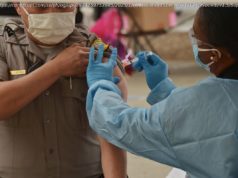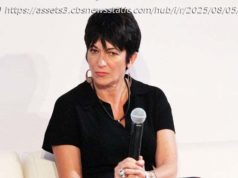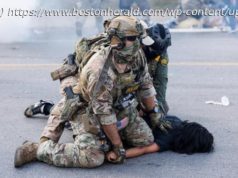The Boy Scouts of America has waded into a culture war with its decision to allow girls to become members and change its name to Scouts…
The Boy Scouts of America has waded into a culture war with its decision to allow girls to become members and change its name to Scouts BSA.
The decision was cheered by many progressives, including the National Organization for Women. Meanwhile, many on the right bemoaned the decision as «tragic self-destruction,» to quote blogger Matt Walsh.
I’m going to have to side with the critics.
The creation of Scouts BSA is bad for girls — but not for the reasons the right thinks it is. And, it certainly isn’t a feminist win. Why Girl Scouts matters
In full disclosure, I am a former Girl Scout.
Over my decade as a scout, I did much more than sell cookies, participating in events from learning to knit to orienteering in the freezing rain. While troops adjust activities based on members’ interests, one of GSUSA’s aims is to push girls to develop skills in areas where women are typically underrepresented. For example, last year GSUSA launched a STEM pipeline program, with plans to roll out 18 Cybersecurity and additional Space Science badges.
I grew up at West Point, and my love for the Girl Scouts is irrevocably tied to the female cadets and other girls and women I met through my troop. Cadet-led rock-climbing lessons and practices with the rugby team helped me understand from a young age that even in an environment where women are the minority, they can find community and thrive.
I continued to participate in Girl Scouts into high school. I even earned my Gold Award, the Girl Scouts’ equivalent of becoming an Eagle Scout.
The Boy Scouts have presented girls’ ability to become Eagle Scouts as one of the major benefits of allowing girls to join. Sydney Ireland, who has been an unofficial member of the Boy Scouts for more than 12 years, put her quest to become an Eagle Scout front and center in her reasoning for why the organization should open up its membership.
«While the Girl Scouts provides a great program for many girls, I want young women to have equal opportunity to earn merit badges, ranks and eventually, the Eagle Award, which opens future opportunities,» Ireland wrote in an op-ed in The Washington Post. «More than half of all astronauts were involved in scouting and 20 percent of West Point cadets are Eagle Scouts.»
I don’t think Ireland is necessarily wrong in her assumption that being an Eagle Scout opens doors — I typically frame the highest achievement in Girl Scouts in relation to the Boy Scout equivalent. But, I think the issue is that men’s and boys’ achievements are often valued more highly than those of girls and women. And, that’s a problem that can be best solved by promoting the Girl Scouts. The history of scouting
Girl Scout leadership has opposed the Boy Scouts’ opening its membership to girls, with one leader calling the move a «reckless» ploy to boost membership numbers.
«Girl Scouts prepares girls for a lifetime of leadership like no other organization,» Girl Scouts wrote in a blog post published on Wednesday. «From protecting our national parks to accepting a mission on the International Space Station to lobbying the city council, Girl Scouts is the best-suited organization to offer girls unparalleled opportunities to learn 21st-century skills and empower themselves with the experiences they need to succeed in life.»
The post continues: «There’s no contest: Girl Scouts is unmatched in delivering proven outcomes that set girls up to close the gender gap and position our nation to compete in the global economy.»
While the GSUSA has evolved over the years, it has been relentless in its mission to put women and girls front and center. The Girl Scouts has faced backlash for its inclusive LGBT policies for decades, openly allowing transgender girls to join since 2011 and never having a policy of excluding bisexual or lesbian members. GSUSA cut religious requirements in the early 1990s, while BSA has yet to formally do so.
Comparing this history to that of the Boy Scouts is central to why the organization’s decision to expand its membership feels like a disingenuous rip-off. It also makes it confusing that progressive organizations would celebrate the expansion of the group.
While the Girl Scouts have been under fire since the early 2000s for accepting gay, bisexual, and trans scouts and leaders, it took intense pressure for the Boy Scouts to change their official positions. The BSA only allowed openly gay scouts in 2013 and gay leaders in 2015. It didn’t allow transgender children to join until last year.
Girl Scout leadership has also slammed the Boy Scouts for its lack of diversity, writing in a 2017 letter that the BSA should focus on «expanding the scope of their programming to all boys, including those who BSA has historically underserved and underrepresented, such as African-American and Latino boys.» A disservice to girls
Some people, like Ireland, seem to have had rewarding experiences with the Boy Scouts similar to what I experienced with the Girl Scouts. There’s something to be said for formalizing the memberships of girls who have been informally part of Boy Scout troops for decades. And, from a purely practical level, I understand the benefits for parents trying to coordinate one scouting organization’s schedule instead of two.
However, positioning girls joining the Boy Scouts as the ultimate triumph for feminist scouting does a massive disservice to girls. There is an opportunity to applaud an organization that centers itself around girls and women, instead of assuming that a male-centric organization is implicitly preferable. Elevating the BSA instead plays into the mindset that makes girls more likely to associate intelligence with men, over women, by age six.
The BSA’s history of backwards politics makes the recent changes feel like a cheap ploy to boost membership and win progressive brownie points. I want to believe that the Boy Scouts — or at least certain troops — are trying to make changes to better serve all children.






